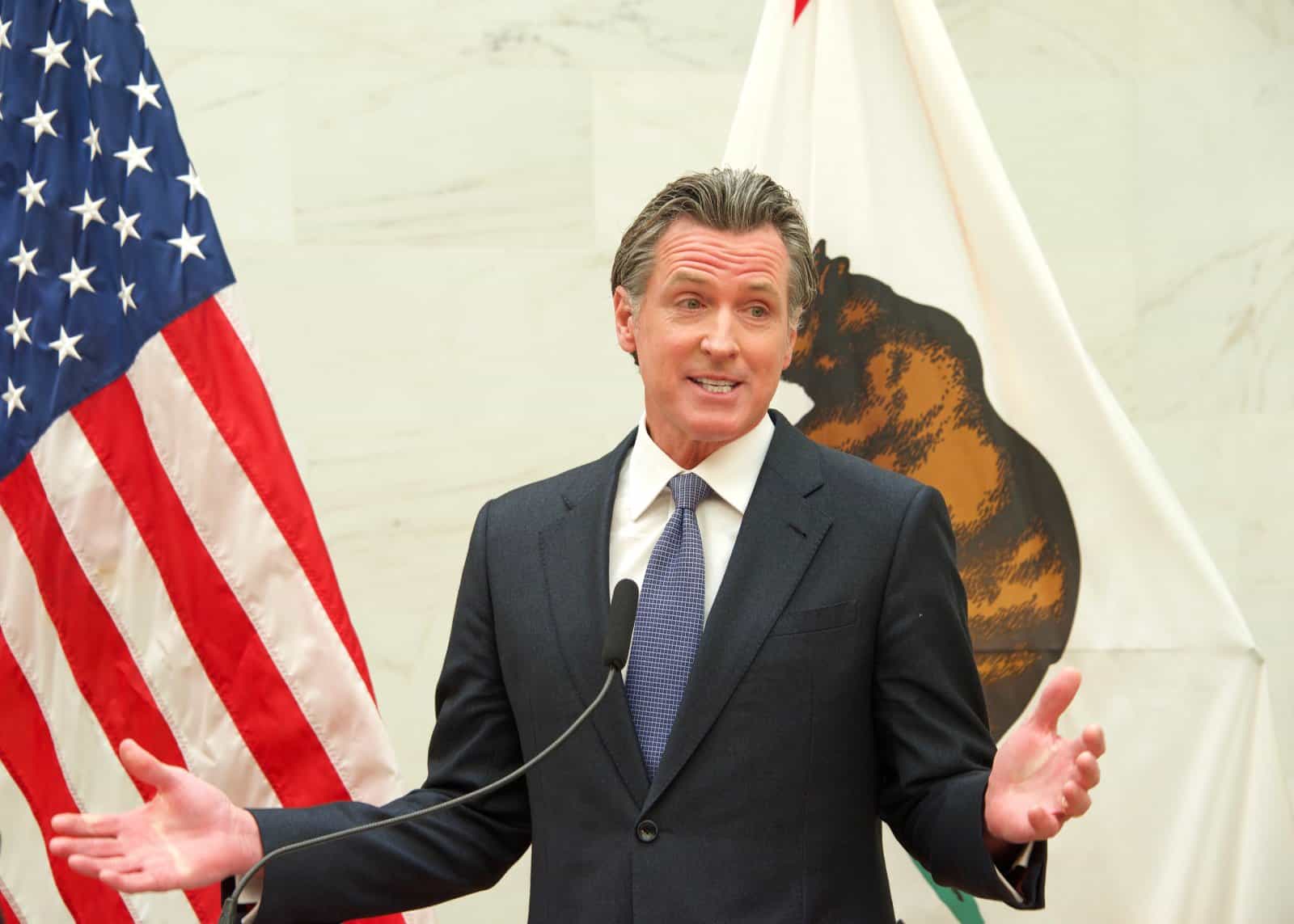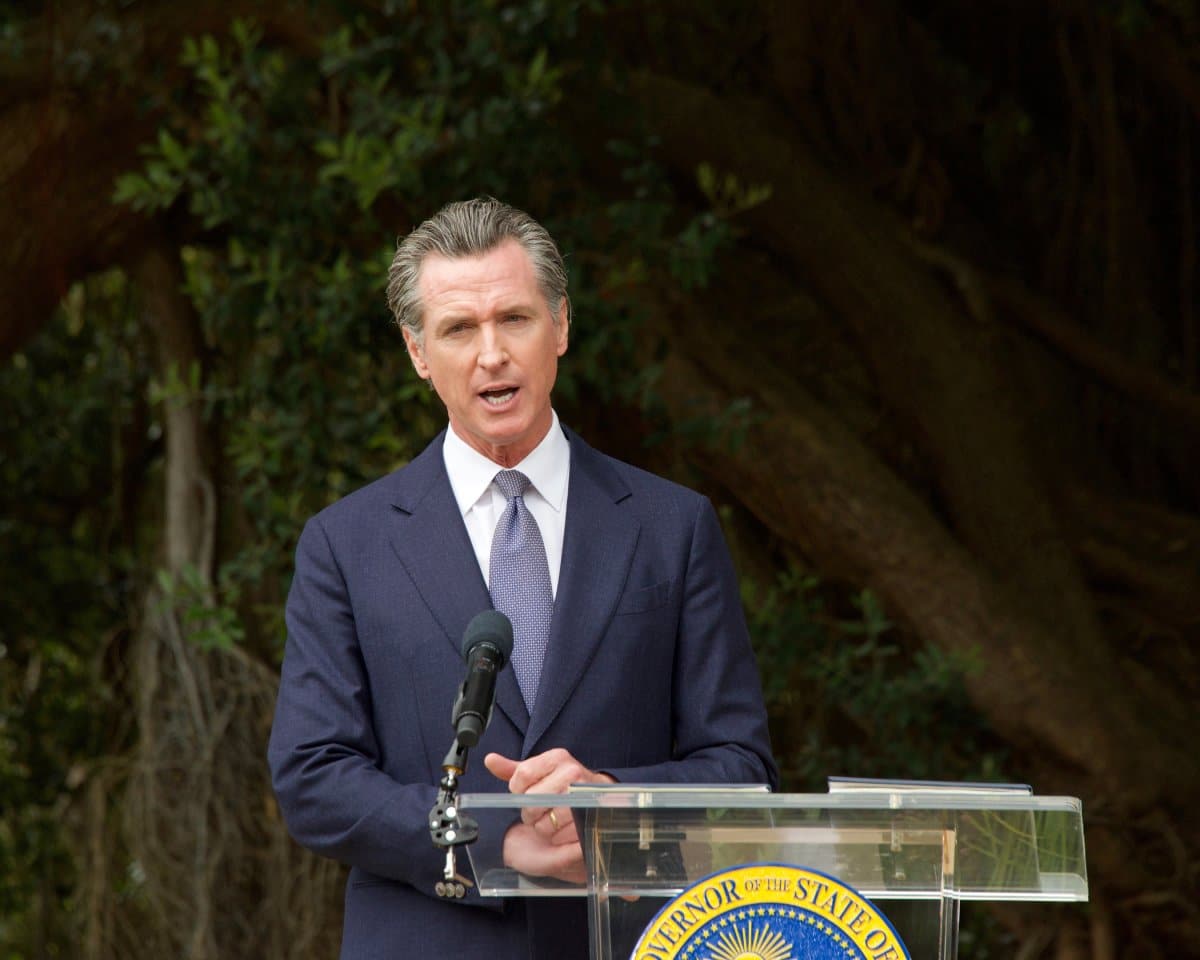California is facing a financial hurricane, and people are furious with Governor Gavin Newsom.
World Cup Windfall

California is gearing up to host the 2026 FIFA World Cup, and state officials are buzzing about the upcoming economic boost.
The Reality

But let’s get real – while the projected windfall of $1.2 billion sounds like a huge amount of money, it’s a drop in the ocean compared to California’s billion-dollar budget shortfall.
The True Cost of California’s Crisis

Back in May, Governor Gavin Newsom announced that California was working with a $26.7 billion deficit, but the reality was much pricier. When you add in the roughly $17.3 billion in agreed-upon spending cuts and deferred expenditures, the real figure is closer to $47 billion.
Cutting Deep

This includes $3.6 billion in cuts to schools, welfare, and climate programs, as well as delaying $5.2 billion in spending on various rail and public transit projects.
Celebration Amidst Crisis

This hasn’t stopped Newsom and other government officials from celebrating the World Cup’s economic impact.
A Rosy Outlook

“By hosting World Cup games, California will enjoy substantial economic benefits from a major surge in tourism and regional development. That means more local jobs and more money spent at local businesses,” wrote Californian Senator Alex Padilla in a press release.
The Truth Behind World Cup Economics

It sounds great on paper, but financial experts have warned that this optimism glosses over California’s looming financial crisis and the reality of hosting a World Cup.
A History of Financial Losses

As Keith Gerard, an auditor of sporting events, explains, “Let’s look at this critically. 12 of the last 14 World Cups lost money overall.”
Hidden Costs

And let’s not forget about the extra costs for security, increased traffic, and the potential loss of working hours for locals. These factors could all chip away at the net economic benefit.
Big Numbers, Small Impact

Los Angeles is expected to benefit by $594 million, and the Bay Area isn’t far behind with a projected $630 million. Together, that’s $1.2 billion – an impressive figure in any other context. But when you stack it against a $47 billion budget deficit, it won’t even scratch the surface.
A Drop in the Bucket

Even if every penny of the World Cup’s projected benefits went straight to the deficit, it would only cover about 2.5% of the shortfall.
From Boom to Bust

California’s budget issues aren’t new. The state’s finances are famously volatile, swinging from a record surplus just a couple of years ago to the current massive shortfall.
How Have They Got Here?

California relies heavily on personal income and capital gains taxes, so when the economy booms, so do tax revenues. But when things slow down, the state’s finances take a nosedive.
Desperate Measures

To tackle the current deficit, lawmakers have already agreed to tap into reserves, delay planned spending increases, cut some services, and suspend some business tax breaks. These steps are needed, but they show just how big California’s money problems are – problems that a one-time boost from the World Cup won’t solve.
Short-Term Gain vs. Long-Term Pain

While the World Cup will bring a rush of activity and spending, it’s only temporary. The tournament lasts just over a month, with California hosting 13 matches in total. The long-term benefits, like increased future tourism, are hard to calculate and might take years to materialize. Meanwhile, California’s budget issues need immediate attention.
Celebration vs. Financial Reality

There’s a disconnect between celebrating the World Cup’s economic impact and confronting California’s financial reality. While the profits seem high, the gains are minimal compared to what the state needs to fix its wider economic challenges.
Tax Revenue Reality Check

The projected $35 million in additional tax revenue for Los Angeles County, for example, is less than 0.1% of the state’s budget deficit.
Misplaced Excitement?

Officials are excited about the good economic news, but it’s important to remember that California still has bigger money problems to deal with.
California’s Real Economic Needs

While the World Cup is something to celebrate, California needs big and lasting changes to fix its money problems. Whether next year’s budget will solve these issues remains to be seen.
Remote No More: 19 Companies Returning to the Office

As the pandemic wanes, companies are recalling remote workers back to the office, sparking debates on fairness, costs, and convenience. However, there are also notable productivity, coworking, and mental health benefits to consider. Feeling the effects of these changes? Remote No More: 19 Companies Returning to the Office
8 Costco Must Buys and 8 to Leave Behind

Ever wandered Costco’s aisles, questioning if that giant jar of pickles is a real bargain? Or debated buying tires where you get your rotisserie chicken? Welcome to the definitive guide to Costco shopping—a journey to save money, prevent regrets, and offer quirky insights into bulk buying. 8 Costco Must Buys and 8 to Leave Behind
23 Reasons Texas Is the Next Big Thing

Texas is becoming a beacon of opportunity, blending cultural heritage with economic growth. From its landscapes to its industries, the Lone Star State offers a dynamic lifestyle. Here are 23 reasons why Texas stands out, attracting entrepreneurs, artists, tech professionals, and families seeking new beginnings. 23 Reasons Texas Is the Next Big Thing
Featured Image Credit: Shutterstock / Sheila Fitzgerald.
The content of this article is for informational purposes only and does not constitute or replace professional financial advice.

